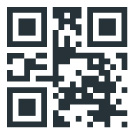California DMV’s chief digital officer Ajay Gupta emphasized that the agency is looking to modernize its current systems and bring greater transparency to car title transfers.
The California Motor vehicle Administration (DMV) has tested digitizing car use rights and ownership transfers through a personal Tezos block chain.
The move is part of a partnership between California vehicle Management, Tezos and blockchain software developer Oxhead Alpha, which was announced on January 25th for a successful proof-of-concept.
The California Motor vehicle Administration has already used Oxhead Alpha to set up a personal Tezos testing network and calls it a "shadow ledger." It is essentially in order to become a copy of the current database of this institution according to the blockchain.
Ajayi Gupta, chief digital officer of the California Motor vehicle Administration, told Fortune magazine on January 26th that the agency expects to deal with the shadow book problem in the next three months.
Since then, it has been looking to release applications such as digital money wallets to own and transfer the rights to NFT cars, with the DMV acting as a middleman to regulate such practices.
"there is no doubt that the DMV's view of being relatively backward should be changed," Gupta told Forbes. "
McGinnis Smith, chief executive of Oxhead Alpha, outlined that the California Institute of vehicle Management's blockchain initiative also provides the agency with a wide range of test cases, especially with regard to the modernization of its current paper system software.
Smith highlighted cases of transaction fraud, in which car suppliers concealed important information about the condition of their vehicles and sold meaningless or "green lemons" to unsuspecting customers.
Although there is a special name on the name of a commonly malfunctioning car in Florida, Smith stressed that merchants can move the car to another state and more easily hide the name of the common malfunction.
However, Smith suggested that with applications stored based on blockchain records, and other DMV likely to adopt this technology, the specific history of cars will be tracked by data much longer.
"this is a very obvious test case in terms of the benefits of having a permanent data list," he said.
In assessing why Tezos is particularly suitable for DMV, Smith outlined in the company's January 25 announcement that the blockchain "solves some really difficult problems in the blockchain in an elegant way."
"the close combination of responsible consensus, chain governance, and organizational security makes Tezos an outstanding service platform for manufacturing-ready solutions," he said.
The California Motor vehicle Administration's move is likely to be followed by others in the state. In May 2022, Florida Mayor Gavin Newsom signed an administrative regulation to specifically guide and practice good opportunities for blockchain technology and the integration of district government agencies.
California is a global innovation center, and we are using this cutting-edge technology to lay the foundation for the state's success-stimulating and responsible indigenous innovation, protecting customers, and benefiting the collective interest through this technology, "the mayor said.















 Tue, 18 Apr 2023
Tue, 18 Apr 2023
